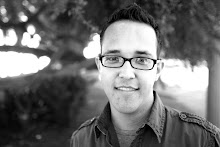
I have to admit that in my descriptions of agnostic theology and a latent God there has been something that I've been avoiding—revelation. For the most part, the avoidance has been accidental. I just didn't happen to post on it. However, I think there is a part of me that just isn't sure what to make of revelation, and so I just (unconsciously?) skipped over it.
I think the reason I struggle with revelation has to do with my understanding of human limitations/frailty/finitude/stupidity. What I mean is that I'm not sure that how capable we, as humans, are of distinguishing the voice of God from voices in our heads. We've all had the experience of hearing something and asking the person next to us,"What'd you say?" when really no one said anything at all. If can't distinguish the voices of people physical present to us from noises in our heads, how can we possibly distinguish the voice of God from self-delusions?
Yes, I know that there are plenty of responses to that kind of skepticism (and at times I've been the one defending revelation), but I want to be clear about what I'm trying say: The only claim I'm making is that revelation is hard for me to grapple with.
And don't worry, I haven't forgotten that revelation includes more than just God-spoke-to-me-in-a-dream kind of stuff. There is, of course, the Bible (at this moment I'm imagining an ancient leather-bound book falling from the sky and landing with a staggering thud, throwing up an immense cloud of dust—as the dust clears, you can see that the ground beneath it is fractured, evidence of the book's great weight and power).
The Bible has it's own set of issues. To start, it didn't miraculously come down from heaven as a complete, bound book (like in the description above). The Bible was written over a vast period of time by many different people. The Bible was edited, reworked, added to, and subtracted from. It was written from many different viewpoints and suggests many different (and sometimes competing) understandings of God. It doesn't even make any claims about it's own authority (we can debate about 2 Timothy 3:16). It is normative for Christian faith, not because God said so, but because Christians said so.
And to make it all more complicated, every book of the Bible began as the kind of revelatory claim I describe at the beginning—someone said God spoke to them (and other related claims).
Again, this all comes back to one big question for me—what do I do with revelation? It's not that I necessarily discount or disbelieve revelation as a whole, but I think it is clear that sometimes "revelation" turns out to be wrong (David Koresh, for example). How, then, are we to distinguish between true and false revelation?
I started to list different possibilities and plenty of examples and counterexamples, but I think it is better just to let the question stand because, honestly, I don't know. Revelation is something that is hard for me to deal with because it doesn't fit neatly into the realm of my experience. It is a troubling, up-ending, messy thing. It turns my notions of what is and isn't upside-down.
And that is precisely what makes revelation an elephant in the room. It is something that common sense says shouldn't be there, but it's there whether we like it or not. So, I guess we have to talk about it....


I hear you loud and clear, Matt, and struggle much the same way that you revealed about yourself in this post.
ReplyDeleteJust this week, I "think" I heard God tell me that He of all persons is very aware of the myriad complexities involved in the art of knowing and how confusing our contemporary pluralistic society is. This idea of what I think I heard God say to me is something I am beginning to place trust in, for it is difficult to find another place to turn to that brings me any real solace.
I am aware of what I believe to be philosophically possible, in terms what what God could be like as far as my brain can reason and in accord with whatever source material has pointed me into that particular direction, and at the same time I sense that this information is not adequate enough to still my spirit from within. I have a tendency to be respectful of other people's points of view concerning especially Ultimate things, and especially toward those who aren't afraid to say "I don't know for sure."
The Bible has become less a book that tells me just the way things are, and more of a medium by which I can meet with God so as to open myself up to Him that He might gain access to my depths for the purpose of renewing my spirit so that I can more meaningfully contribute toward His good Kingdom here on Earth. So I guess you can say that I utilize the Bible to gain a basic narrative understanding of the Christian Story, as best as I am capable of discerning, and then I let it affect me the best ways possible that I might become a more loving person.
Having said all of that, it (the Bible), and God, remain very mysterious to me, and I am becoming more open toward the idea that goodness bears more significance that rightness.
Wtf! I go to your school and we do the same work! A professor of mine this semester called it the "Mystery project." Email me at mlowe@hds.harvard.edu seriously.
ReplyDelete